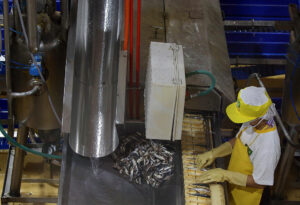What began as isolated disputes over niche items is now reshaping how cakes, baked goods and sweet snacks are treated for tax purposes. The result is that products previously considered zero-rated are increasingly being reclassified as standard-rated confectionery, subject to 20% VAT.
The change centres on a single phrase in VAT legislation, which defines confectionery as: “Chocolates, sweets and biscuits; drained, glace or crystallised fruits; and any item of sweetened prepared food which is normally eaten with the fingers.”
HMRC and the courts are treating this final clause as decisive. If a product is sweetened and typically finger-eaten, it is now likely to be deemed confectionery.
That logic has already been applied to cases ranging from mega marshmallows to M&S’s viral Strawberry and Crème ‘sandwich’, raising industry-wide questions about how far the category could extend.
HMRC has gone beyond case-by-case challenges and is now issuing ‘One to Many’ letters to producers, wholesalers and retailers. These urge businesses to file error correction notices for potential underpayments dating back four years.
The language of the letters suggests HMRC assumes errors have already been made. Voluntary disclosure may soften penalties, but businesses risk significant retrospective liabilities if they fail to act.
What food businesses should do now
Experts advise companies to take a proactive stance:
• Track case law timelines – understanding when products were ruled taxable is key to assessing backdated exposure.
• Review past HMRC correspondence – previous clearance or reliance on HMRC behaviour may provide a defence.
• Audit product ranges broadly – don’t just review the items HMRC highlights; a full audit may reduce risk.
• Explore legal challenges – not all HMRC interpretations are unassailable, and viable counterarguments remain.
For many businesses, the issue is not just future liability but historic exposure. Margins across food production and retail are already squeezed by inflation, wages and regulation. Unexpected backdated VAT bills could be devastating for smaller producers and costly even for established players.
The expansion of the confectionery definition signals a fundamental shift in HMRC’s approach. The courts’ willingness to support that shift suggests that zero-rating sweet products will become increasingly rare.
The takeaway is clear: the days of relying on historic VAT treatments are over. Businesses that move quickly to review and adapt their VAT positions will be best placed to limit financial and reputational damage.


















